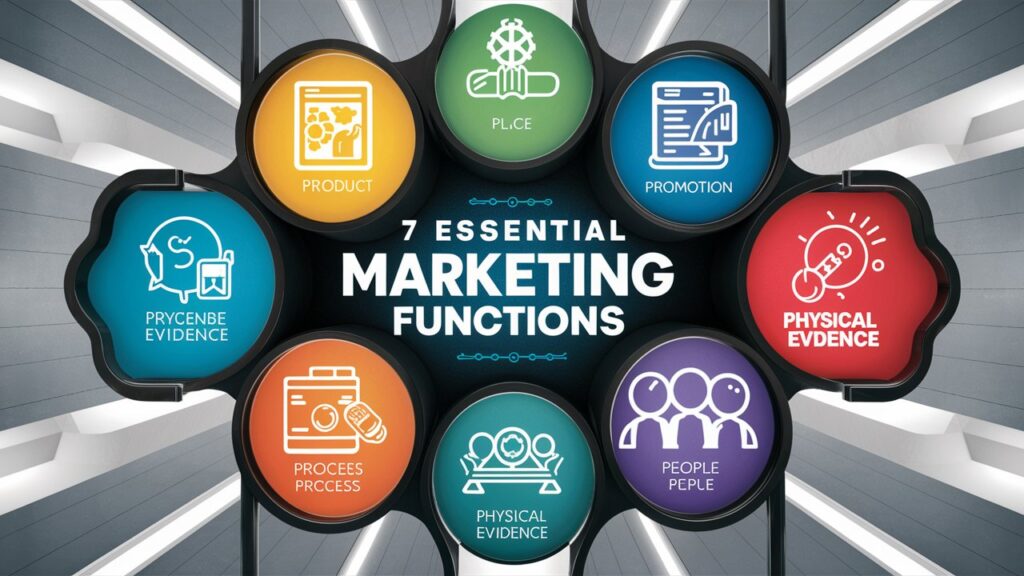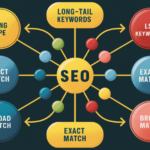
Marketing Functions
Marketing Functions An effective business is built on the broad field of marketing. It covers a broad range of tasks, each with vital roles in achieving the business goals. In this article, we’ll look at the seven most important aspects of marketing, to give you an knowledge of their importance and the impact they have.
Assessing and researching the market
Effective marketing campaigns are built on a solid foundation of market research and analysis. When conducting a thorough analysis businesses gain valuable insight into their market’s needs as well as their customers’ demands and the offerings of competitors. This involves acquiring and analyzing information to determine trends, preferences, as well as opportunities that will inform decisions.
Market research can help businesses better understand their customers’ preferences. Needs, which allows them to design their offerings and services according to customer needs. It can also help identify markets that aren’t being tapped. Have gaps which allows businesses to create new products to meet these requirements. By conducting market analysis, companies can analyze. The results of their marketing strategies and take data-driven choices to improve their strategies.
Research and analysis that is thorough help businesses remain ahead of the game find growth opportunities and take informed choices that increase profitability.
Product Development and Management
Development and management of products are crucial tasks that require the creation. maintaining services and products that satisfy the customer’s needs and expectations. This includes a variety of tasks, like product concepttion and design, along with testing and improvement.
To succeed in the highly competitive marketplace of today. They must constantly design and create products that are distinctive from their competitors. Development of products involves studying the trends in the market. Consumer preferences and also technological advancements to create products that address issues or meet needs.
When the product is developed effective product management is vital to ensure its success at The initial launch and its continued success. This includes pricing strategies, branding strategies, packaging and positioning to increase the effectiveness and value of the product to customers. It also involves analyzing feedback from customers and making the necessary adjustments to increase the effectiveness of the product and also to increase the satisfaction of the customers. Effective marketing
Pricing Strategies and Tactics
Pricing is an essential aspect of marketing that directly affects the competitiveness and profitability of a company. The development of efficient pricing strategies and strategies require careful consideration of many aspects, such as costs of production, market demand competition, perception of value.
Companies must decide on the best price that is able to balance profitability and the willingness of customers to pay. This involves studying the market’s dynamics, conducting price tests, and observing the pricing strategies of competitors. By analyzing customers’ pricing sensitivity as well as the worth they attach to the product or service, companies can determine prices that will maximize revenues and share of market.
Techniques for pricing, like discounts, promotions. bundles, are also used to attract customers. Increase sales and also encourage customers to make repeat purchases. It is important to find the perfect equilibrium between pricing strategies while preserving the perception of worth of the product or service.
Promotion and Advertising
Advertising and promotion are tasks that generate awareness, stimulate excitement, and encourage clients to purchase a particular item or service. This requires the creation of persuasive messages, selecting the appropriate channels, and then executing campaigns that are able to reach your target people efficiently. Effective marketing
Effective advertising and marketing strategies make use of a variety of marketing channels like radio, television and print media, as well as digital platforms along with social media. Companies must be aware of their target audience’s preferences, habits and consumption habits to craft relevant and memorable messages.
With the growth of online marketing companies can use targeted ads and search engine optimization content marketing as well as social media to connect with a larger market and boost engagement. The key to a successful campaign and advertising lies in the creation of unique selling points, engaging images, and compelling content that is appealing to customers.
Distribution and Logistics
Logistics and distribution are essential to making sure that the products and services are delivered efficiently and in time. This is a job that is managing the flow of products from the factory to the consumer at last, taking into account factors like logistics, transportation, warehouse management, and fulfillment of orders.
Companies must design their distribution channels in order to maximize speed, cost as well as customer satisfaction. This could involve using a variety of distribution methods, including direct sales, wholesalers retailers, e-commerce platforms or any combination of these channels.
Effective logistics management makes sure that the correct products are in the correct location and at the right time, thus reducing stockouts, delays, and the dissatisfaction of customers. It also requires the development of solid network of supply chains, setting up systems for controlling inventory, as well as continuously evaluating and improving the distribution process.
Sales and Customer Relationship Management
Customer relationship management and sales are two areas that concentrate on increasing revenue, creating loyal customers, and creating long-term relationships. This is a job that involves controlling the sales process while nurturing leads, as well as providing excellent customer service.
The most effective sales methods include prospecting, identifying leads, making persuasive sales presentations and closing deals. Businesses should invest in training as well as equipping sales team with the tools and skills necessary to be successful in the competitive marketplace.
The management of relationships with customers (CRM) can be equally crucial and focuses on maintaining good relations with customers. With CRM, companies can monitor customer interactions collect feedback and customize communication to increase the customer’s satisfaction as well as loyalty. This also involves implementing loyalty programs, retention strategies, as well as proactive customer service.
Marketing Planning and Strategy
Marketing strategy and planning form the basis that governs all marketing activities. This is accomplished by setting precise goals and identifying the potential markets, drafting marketing strategies, and distributing the resources in a way that is efficient.
A clearly-defined marketing strategy outlines the specific actions as well as timelines and budgets needed to meet marketing objectives. It will take into consideration various factors like the competitive landscape, market conditions as well as the target market and the available channels for marketing.
Marketing strategy is the process of making decisions and actions that are taken to meet the goals of marketing. It involves determining the market for which you want to target as well as positioning the brand selecting the elements of a marketing mix, and constantly assessing. Revising strategies according to the market’s dynamics.
The Importance of Integrating the 7 Functions of Marketing
To maximize their efficiency, companies must combine and align the seven aspects of marketing. Each plays an essential role and is vital to the overall efficacy of marketing efforts. Integration helps ensure that all functions operate in harmony, drawing on the strengths of each other and gaining insights.
Market research for instance, can provide valuable information. that helps guide the development of products as well as pricing and marketing strategies. A well-organized distribution and logistics system supports the sales process. by making sure that the products are easily accessible to customers. Management of customer relationships and sales offer feedback that helps inform the development of marketing strategies and product improvements.
In integrating the seven aspects of marketing. Companies can develop a unified and complete strategy that increases their marketing effectiveness. Improves satisfaction among customers and reaches the business goals.
Conclusion
Marketing can be described as a fast-paced field that requires an in-depth understanding of its various uses. In analyzing the specifics of each task. Revealing their crucial role in the creation of effective marketing campaigns and reaching goals for business.
Starting with market research, product creation, to marketing. Managing customer relationships Every function is responsible for increasing brand recognition as well as driving sales and encouraging customer loyalty. Integrating these activities and aligning them to the overall goals of the business is crucial to achieving success in marketing.

I have been in the SEO industry for more than 9 years, with skills and attitude that are geared towards improving the online presence of your website on search engines such as Google and Bing. Currently, I am Margaret Dalton digital working as a Lead Analyst in a Fortune 50 company, and at the same time, I was working as a successful SEO Freelancer to help websites of any sizes to get on top of the search engines.





